Quality and Recognition
System of Quality Assurance
The system of VMU quality assurance includes all quality enhancement activities. This is a purposeful and targeted planning, implementation, evaluation, and improvement of strategic quality management, studies and learning, research and artistic activities, doctoral studies and the processes supporting them, in order to meet the priorities of higher education, legal requirements and the needs of social stakeholders.
Quality assurance of the University is guided by institutional, national and international priorities of studies, research and artistic activities, legal requirements, opinions and proposals of social stakeholders, recommendations of external evaluators, and examples of good practices. Quality assurance of the University is aimed at the development of quality culture, where compliance of activities with the highest quality requirements is a common interest and aspiration of the entire VMU community; activities are constantly monitored, information is analysed, and changes are responsibly introduced.
The concept, principles, responsibilities and processes of quality assurance as well as related documents and quality indicators are structured in the University Quality Manual (abstract).
International Recognition and Institutional Assessment
QS World University Rankings
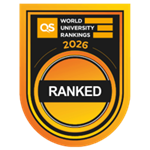
In the latest edition of the QS World University Rankings, Vytautas Magnus University (VMU) achieved significant results, further improving its already high indicators in the field of internationalisation and securing solid positions in other categories, while in the overall ranking it remained in second place among Lithuanian universities in terms of total points scored.
In the ranking, VMU was placed in the 741–750 band. The university performed best in the categories of diversity of international students and number of international students, where VMU was allocated very high positions among all universities worldwide: 244th and 270th respectively.
VMU made its biggest leap in the indicator of International Faculty Ratio – it rose from 520th to 455th place in the world.
VMU also climbed by almost fifty places and took 653rd place in the International Research Network category, with the university rising markedly in all indicators related to internationalisation.
QS World University Rankings: Europe
In the QS World University Rankings: Europe, Vytautas Magnus University (VMU) received high evaluations: it was ranked 7th in Europe for its Faculty Student Ratio and 43rd in the continent in the Inbound Exchange Students category. VMU was also evaluated particularly well in the Employer Reputation category (160th place in Europe) and in International Student Diversity (175th place). VMU was placed in the 251+ band in the Academic Reputation category and in the 301+ band in the remaining categories. In total, the university scored 30.9 points and took 267th place in Europe among 685 higher education institutions included in the ranking. Among the six Lithuanian universities that entered the ranking, VMU was placed third.
QS World University Rankings by Subject 2025
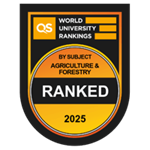
In the global subject ranking QS World University Rankings by Subject 2025, VMU has been demonstrating successful results for the fifth year in a row. In the field of Agriculture & Forestry, its study programmes were assigned a particularly high position in the 301–350 band, with a score of 50.9 points. According to the ranking’s authors, in this field VMU offers some of the best study programmes in the world. Better evaluations than last year were awarded to as many as fifteen of VMU’s narrow fields of study assessed in the ranking.
Among the broad subject areas, as in the previous year, VMU received its highest evaluation in Arts & Humanities, where the university scored 54.7 points. A high score was also awarded in Social Sciences & Management – 53.6 points. The other broad subject areas assessed likewise received high evaluations, all exceeding 40 points.
QS World University Rankings: Sustainability 2026
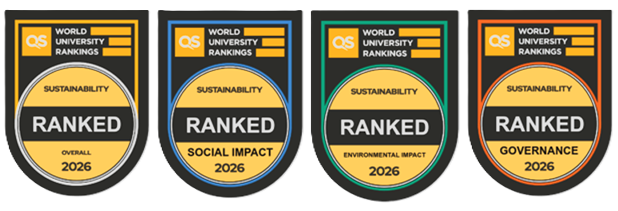
In the global QS World University Rankings: Sustainability 2026, VMU moved up by almost two hundred positions, taking 631st place among 2,000 universities. VMU improved almost all of its indicators and was unrivalled in the Environmental Education category, where it ranked first among Lithuanian universities.
VMU achieved its best results in the following QS sustainability indicators: Health & Wellbeing (82.1 points), Governance (79.1), Equality (77.3), Environmental Research (75), Knowledge Exchange (71.4). In the overall sustainability ranking, VMU was placed 631st in the world, 261st in Europe, 105th in the Northern Europe region, and third in Lithuania.
Compared with the previous year, VMU achieved better results in almost all areas, including Health & Wellbeing (457th place worldwide), Equality (482nd), Environmental Education (575th), and Governance (597th).
UI GreenMetric World University Rankings
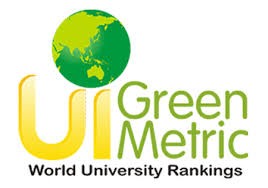
In 2024, Vytautas Magnus University took 340th place out of 1,476 institutions in the UI GreenMetric World University Rankings, and 97th place in the European region. The university’s achievements were evaluated across various aspects such as infrastructure, energy and climate change, water consumption, waste management, transportation, as well as education and research in the field of sustainability. VMU gained the highest number of points in the waste management and infrastructure indicators.
Times Higher Education (THE) World University Rankings
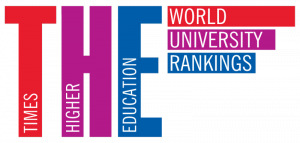
Over the past three years, Vytautas Magnus University (VMU) has consistently strengthened its position as a modern and internationally competitive university. The latest Times Higher Education World University Rankings 2025 results confirm this – VMU has maintained its place in the 1201–1500 band of the world’s best higher education institutions and, at the national level, has risen to fourth place.
VMU remains one of the largest universities in Lithuania: it ranks second by total number of students and third by number of international students. These figures reflect not only the attractiveness of the academic environment, but also the university’s ability to attract diverse, globally minded talent communities.
Ranking of Lithuanian public universities by Reitingai magazine

In the 2025 rankings of Lithuanian public universities published by the magazine Reitingai, Vytautas Magnus University (VMU) took first place in the country for academic staff indicators and third place in the categories of internationalisation and research activity.
VMU became the leader in the indicators of current and future academic staff, scoring 3.49 points. In this category, VMU received particularly high recognition for the share of National Culture and Art Awards and Science Awards obtained by university employees in 2015–2025, calculated per academic staff member: as much as 24.8 percent. VMU also received the best evaluation in Lithuania for the fact that all doctoral students admitted in 2020 successfully defended their dissertations in 2024.
VMU was ranked third in terms of competition in the international higher education area (5.98 points) and in scientific, artistic and/or sports activities and the added value created for the national economy (9.77 points).
VMU also received strong evaluations according to other criteria. Employers, when asked which universities’ graduates’ knowledge and skills best meet their companies’ needs, awarded second place in Lithuania to VMU alumni (56.5 percent). In the internationalisation category, where the university is consistently among the leaders, VMU was unrivalled in terms of the highest proportion of foreign academic staff (3.7 percent).
Subject rankings by Reitingai magazine

The magazine Reitingai has published its latest comparative evaluation of university study fields, in which Vytautas Magnus University (VMU) remains among the leaders. VMU took second place in Lithuania by the number of bachelor’s study fields in which the university ranked first (in total, VMU leads in ten BA-level fields) and third place in the country for leadership at the master’s level, where the university ranked first in eleven fields.
In bachelor’s studies, VMU ranked first in programmes in ten fields: Agronomy, Environmental Engineering, Environmental Studies, Accounting, Ecology, Food Studies, Forestry, Regional Studies, Religious Studies and Agriculture. By points scored, the best-evaluated VMU bachelor’s study programmes in these and related fields were Environmental Engineering, which received 96.21 points, Food Studies (95.29 points), Religious Studies (92.86), Regional Studies (90.33), History (88.41), Accounting (84.88), Psychology (80.02), Media Art (79.66), Pedagogy (78.33), Sociology (77.99), Business (77.29), Marketing (76.97), Art Studies (76.18), and Law (75.76). This year VMU also rose to second place in the national rankings in the Law and Psychology fields of study.
In master’s studies, VMU remained the leader in Lithuania in eleven study fields: Agronomy, Anthropology, Environmental Engineering, Environmental Studies, Education Sciences, Ecology, Cultural Studies, Food Studies, Art Studies, Forestry, Theology and Religious Studies. The highest scores were awarded to VMU MA programmes in Education Sciences, which received 91.11 points, Ecology (87.5 points), Theology and Religious Studies (83.2), Environmental Studies (83.16), Art Studies (82.41), Environmental Engineering (81.76), History (75.3), and Political Science (71.39).
Evaluation of VMU activities by experts of the European University Association (EUA)

In 2014, an external evaluation by the European University Association (EUA) experts took place under the initiative of VMU, during which the EUA international experts presented their insights and evaluation conclusions about the activities of VMU. The experts responded very positively about the University’s openness to new ideas, positively evaluated study and research innovations at VMU and emphasized that the processes taking place at the University demonstrate excellent conditions for change and improvement. The experts proposed to strengthen the monitoring of the implementation of the VMU strategy in the future, to look for additional sources of income, to diversify the methods of providing support to students, to develop international cooperation in studies and research.
External Institutional Evaluation by experts of Centre for Quality Assessment in Higher Education (SKVC)
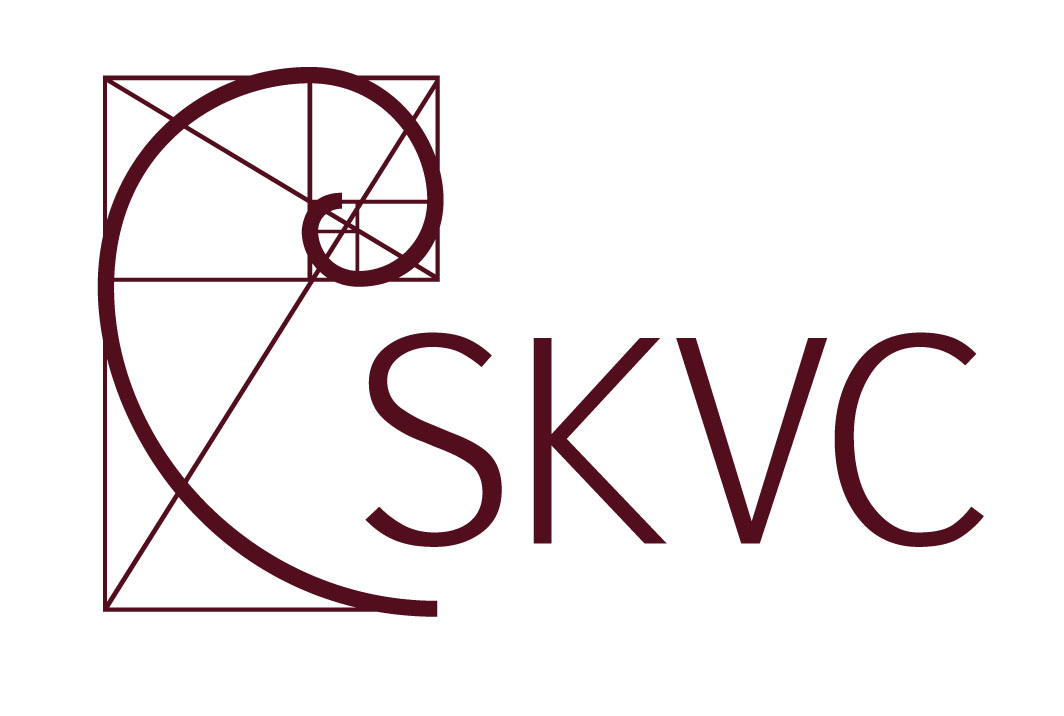
During external review of VMU in 2023, a group of international experts assembled by Centre for Quality Assessment in Higher Education (SKVC) evaluated VMU activities as “very good”, made positive decision and accredited the University for the maximum period of seven years. In the review conclusions, the experts admitted that the university not only stands out in the entire Europe due to flexibility of the studies it offers but also has wide-ranging international activities and high quality of scientific research and infrastructure. According to the expert group, during the integration with Aleksandras Stulginskis University and Lithuanian University of Educational Sciences, VMU developed effective management processes and VMU Strategic Activity Plan properly reflects its mission. As an active member of the European university alliance Transform4Europe, VMU is successfully seeking recognition as a university that conducts international-level research.
The experts gave VMU the rating “very good” in the categories of management, studies and research (art) and impact on regional and national development, and the rating “good” in the category of quality assurance. VMU was recognised for its clear management structure, which allowed it to respond effectively to the pandemic, the war in Ukraine and other unexpected events, as well as for its human resource management policies that support participative culture and for constant, highest-standard infrastructure renewals, e.g. VMU Sports Centre, Teacher Preparation Centre etc.
The broad range of VMU services for employees and students also received high assessment, as well as effective quality assurance based on national and international priorities, the Code of Academic Ethics and the Centre of Ukraine, which was visited by 24,000 Ukrainians in a year. According to the experts, VMU offers flexible studies based on liberal arts that make the university stand out not just in Lithuania but also in the entire Europe. The university provides great international opportunities for the entire community. VMU’s impact on regional and international development was also assessed as “very good”, especially the university’s close cooperation with social partners in various activities and studies, e.g. while organizing the National Forum on Human Rights.
The experts also provided recommendations on how the University’s management, development of studies and research, and the impact on regional and national development could be improved. For instance, it is suggested that the university’s strategic plan should be updated in accordance to already completed activities and more concise formulation should be used with fewer indicators dedicated to implementation of strategic goals; additionally, employee participation in the activities offered by the Professional Competence Development Centre should be encouraged, etc.
The conclusions and recommendations by the international experts were discussed during the meetings of VMU Rector’s Council, Senate, Council, and the university’s sub-divisions. Based on the experts’ recommendations, a plan is being developed for the improvement of VMU activities. In order to effectively implement the assessors’ recommendations, the improvement measures included in the plan are integrated into the activities of the academic and non-academic sub-divisions. The monitoring of the implementation of this plan is conducted annually, reviewing the actions performed in the respective VMU sub-divisions and summarizing them in the annual activity reports.
Study Quality Assurance
Regulation of internal study quality assurance
Statute of VMU describes the main principles of study quality in order to systematically assure the quality of studies.
VMU Study Regulations defines study quality processes and the division of responsibilities for study quality assurance.
Description of Procedure for Study Quality Assurance at VMU describes in detail the study quality assurance processes and measures for the planning, implementation and renewal of studies.
Description of Procedure of Feedback for Improvement of Quality of Studies at VMU regulates the process of collecting feedback from social stakeholders and using data for the purposes of evaluating and improving the quality of studies.
Description of Procedure for Study Course Attestation at VMU determines the evaluation of the compliance of the courses with the goals and learning outcomes of the study programme, the requirements of study process and the assessment system according to the established criteria.
Description of Procedure for Organisation of Online and Blended Studies at VMU regulates the evaluation of the suitability of study courses for online and blended studies and the attestation of study courses.
VMU Quality manual systematically presents the concept, principles, responsibilities and processes of quality assurance as well as related documents and quality indicators aimed at the continuous quality enhancement.
Study Quality Surveys
The following university study quality surveys are conducted at VMU for internal evaluation:
- End-of-semester student survey on teaching and learning in the study courses (results: 2024–2025 autumn; 2023–2024 spring; 2023–2024 autumn; 2022-2023 spring; 2022–2023 autumn; 2021–2022 spring; 2021–2022 autumn).
- First-year student survey on the reasons and expectations for choosing studies, their opinion about studies, student employment (results: 2022–2023; 2021–2022; 2020–2021).
- Survey of graduating students on the quality of study programmes, internships, the processes of preparation and defence of final theses at the University and their career plans (results about studies: 2023-2024; 2022-2023; 2021–2022).
- Survey of students who have terminated their studies on the reasons of dropout.
- Survey of teachers on teaching and professional development, student involvement in studies, working conditions for teaching at the University (results: 2023-2024; 2022-2023; 2021–2022).
- Alumni survey on completed studies, adaptation in the labour market and career prospects (results about studies: 2023-2024; 2022-2023; 2021–2022; 2020–2021);
- Student survey on the quality of internships and student survey on the quality of study programmes are carried out according to the needs of the academic units and in line with a plan agreed with the study programme (field) committee. The purpose of the first survey is to identify students’ opinions on the organisation, coordination, supervision and usefulness of internships in enhancing knowledge and skills in their speciality, and the second survey is to find out students’ views on the quality of their study programme by assessing the teaching, studying, organisation of internships, and the availability of material resources for their studies.
Other surveys are carried out by University departments to gather information from social stakeholders on a range of issues. For example, employer surveys are carried out to determine the work readiness of students and graduates who have completed their internships, the integration of alumni into the labour market, etc.
Study Quality Improvement
Study quality improvement is based on the results of surveys conducted by the University, and the opinion of social stakeholders gathered by other sources as well as information on various study indicators. Discussions on the possibilities for study quality enhancement are held with the students and teachers at the University, they are also organised at the Senate, Rectorate, Faculty, Academy, and other meetings. The heads of the departments use the gathered information about studies to make decisions on the planning and implementation of activities. The information of the internal study quality assessment is useful for Study Program Committees when planning the improvement of the study programs. The feedback is relevant for teachers and students to improve the quality of teaching and learning.
To ensure systematic enhancement of the quality of studies, study program improvement plans are prepared, and their implementation is monitored. Study Program Committees annually identify the areas of study programs to be improved, suggest improvement actions, link them with the results of external and internal study assessment, allocate responsibilities and time resources, evaluate the implementation of previously planned improvement actions. These steps guide to purposeful planning, implementation, and improvement of studies.
Monitoring of study quality improvement is also performed by the Faculty, Academy Councils and VMU Study Quality Unit. The Councils consider the issues of study fields and make decisions on the improvement of the fields under their responsibility. The Study Quality Unit provides insights and recommendations for improving the quality of study programs and fields.
Study Field External Evaluation
The external evaluation of study fields began in 2020, and it serves as the basis of study fields’ accreditation. The quality of study fields is evaluated by points (5-point evaluation scale) according to 7 evaluation areas: study objectives, outcomes and content; links between science (art) and study activities; student admission and support; studying, academic achievements and graduate employment; teaching staff; study facilities and learning resources; study quality management and publicity.
Currently, all the study fields and their study programmes of VMU are accredited until the next evaluation of the study fields according to The Plan for External Study Field Evaluation (in LT) approved by the Director of SKVC, Order No. V–149, 31 December 2019. The accreditation decisions and evaluation reports of VMU study fields already evaluated by experts can be found here:
Anthropology (J05): decision of accreditation and evaluation report
Area Studies (N06): decision of accreditation and evaluation report
Biology (D01): decision of accreditation and evaluation report
Biotechnology (F05): decision of accreditation (first cycle, second cycle) and evaluation report
Competitive Sport (R01): decision of accreditation and evaluation report
Business (L01): decision of accreditation and evaluation report
Civil Engineering (E05): decision of accreditation and evaluation report
Ecology (D07): First cycle: decision of accreditation and evaluation report
Second cycle: decision of accreditation and evaluation report
Energy engineering (E13): decision of accreditation and evaluation report
Environmental Engineering (E03): decision of accreditation and evaluation report
Environmental Science (C04): decision of accreditation and evaluation report
Finance (L03): decision of accreditation and evaluation report
Food Studies (I06): decision of accreditation and evaluation report
Forestry (I03): decision of accreditation and evaluation report
Heritage Studies (N12): decision of accreditation and evaluation report
History (N08): decision of accreditation and evaluation report
History and Theory of Arts (N15): decision of accreditation and evaluation report
Informatics (B01): decision of accreditation and evaluation report
Journalism (J12): decision of accreditation and evaluation report
Law (K01): decision of accreditation and evaluation report
Linguistics (N01): decision of accreditation and evaluation report
Literary Studies (N02): decision of accreditation and evaluation report
Management (L02): decision of accreditation and evaluation report
Marketing (L05): decision of accreditation and evaluation report
Mechanical Engineering (E06): decision of accreditation and evaluation report
Media Art (P07): decision of accreditation and evaluation report
Molecular Biology (D04): decision of accreditation and evaluation report
Music (P03): decision of accreditation and evaluation report
Natural Resource Technology (F01): decision of accreditation and evaluation report
Political Sciences (J02): decision of accreditation and evaluation report
Philology (Lithuanian) (N04): decision of accreditation and evaluation report
Philology (foreign language) (N04): decision of accreditation and evaluation report
Production and Manufacturing (E10): decision of accreditation and evaluation report
Public Administration (L07): decision of accreditation and evaluation report
Religious Studies (N13): decision of accreditation and evaluation report
Sociology (J03): decision of accreditation and evaluation report
Theology (N11): decision of accreditation and evaluation report
Transport Engineering (E12): decision of accreditation and evaluation report












